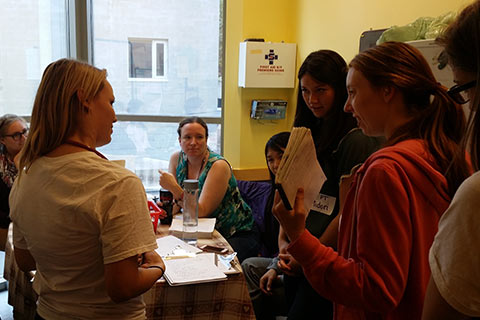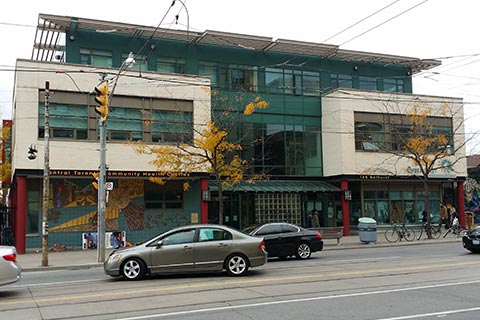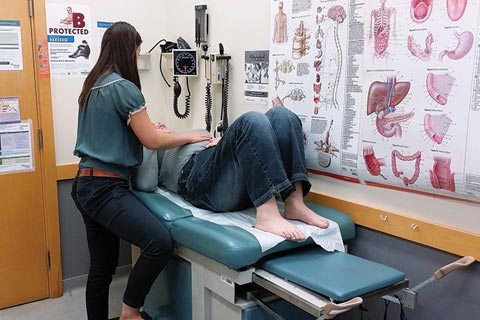Imagine a clinic providing free health care to Toronto’s most vulnerable residents: people with no fixed address, health insurance or ID. Too utopian? Not for a group of University of Toronto students. In 2007, U of T students from a variety of health profession programs came together to form the Interprofessional Medical and Allied Groups for Improving Neighbourhood Environment (IMAGINE). And by 2010, with support from faculty and community partners, the IMAGINE Clinic was open and offering medical, nursing, pharmacy and social work services. In 2012, physiotherapy was integrated, and the student volunteers became able to earn Interprofessional Education credits for their service.
“It’s a unique, underserved patient population, so it’s a great opportunity to be able to help,” says Claire Hooper, a third-year pharmacy student volunteering at IMAGINE.

Credit: Jelena Damjanovic
Students volunteer at the clinic for three consecutive Saturdays, followed by a guided group reflection day. They work in teams of five students drawn from each health discipline, supervised by five preceptors – licensed healthcare practitioners, who are also volunteers.
The students take the patient’s history, perform a physical exam, interpret information, write clinical notes and develop a treatment plan. Christopher Wang, now in his second year of medicine, likens the experience to doing a puzzle. “We gather all the pieces and then with the expertise of everybody we try to figure out what this patient is here for and what we can do to help.”

Credit: Jelena Damjanovic
More than 200 clients were assessed and treated at IMAGINE last year. Many patients come in for physiotherapy, because it’s generally not covered by health plans, but students also see people with common ailments, infections or mental health issues and they treat them all. The clinic is open every Saturday from 10 a.m. to 2 p.m., except on long weekends and holidays.
One patient, visiting for a follow-up about her back pain, is happy with the service she is getting. “I like when they show me some exercises or give me a handout so I can practice at home,” she says. “They really want to keep me on track.”
“The students are getting intensive exposure to the social determinants of health,” says Norma C. Carter, a general practitioner who has been volunteering at IMAGINE as a physician preceptor since 2011. “And they also learn not to be afraid of caring for a challenging population.” Hooper agrees: “It makes you a better health practitioner.”





